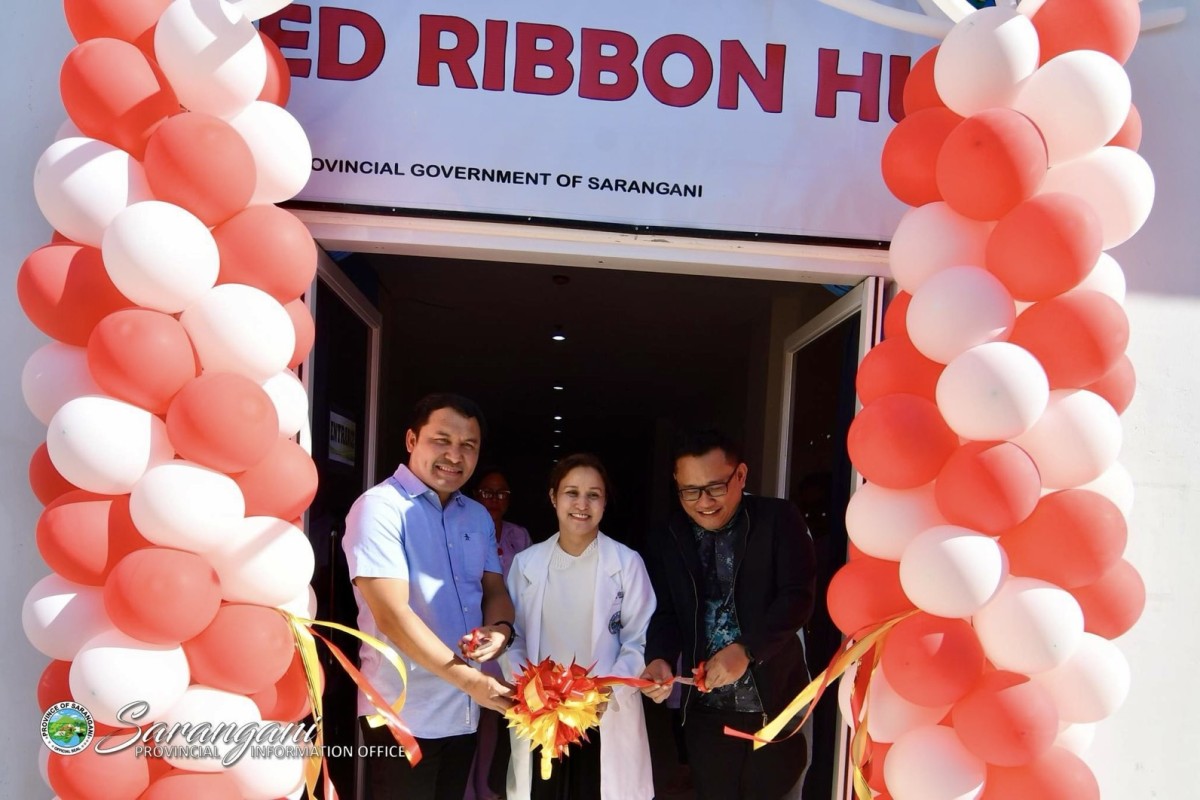
GENERAL SANTOS CITY (PIA) -- The provincial government of Sarangani has recently opened healthcare facilities that will provide its residents with access to HIV and AIDS treatment and care.
Gov. Rogelio Pacquiao led other officials in the launch of the “Red Ribbon Hub” on Feb. 21.
Pacquiao underscored the significance of the Red Ribbon Hub, saying that "it will serve as a beacon of hope in Sarangani’s collective fight against HIV and AIDS," reassuring his constituents of the local government’s commitment to fair healthcare that is accessible and affordable for everyone.
Dr. Aileen Brion, chief of Sarangani Provincial Hospital (SPH), shared her hope for Sarangani’s Red Ribbon Hub or the HIV Treatment Hub to “eventually break the HIV and AIDS stigma,” leading to “a community where acceptance and support reign supreme.”
“It also helps that people are aware of such services, that the Sarangani Province has a testing and treatment facility, and that people living with HIV (PLHIV) may no longer need to go to nearby provinces to avail of such services,” Brion conveyed.
Taking pride in the facility, Brion described it as “the first HIV and AIDS Treatment Hub" located at Sarangani Provincial Hospital in Alabel to represent a "major advancement in healthcare" for the region.
“This puts Sarangani in the spotlight as the third LGU in Soccsksargen to have its own HIV Treatment Hub, following South Cotabato and General Santos City,” she noted.
Brion cited that from 1984 to October 2023, 189 cases of HIV infection have been reported in Sarangani.
She explained, however, that the province has lacked a dedicated HIV testing and treatment hub since 2019, requiring PLHIV to seek treatment from nearby facilities in Region 12.

According to the data from the Philippine HIV and AIDS Registry from January 1984 to March 2023, a total of 112,028 cases of HIV have been recorded. It added that in March alone, 498 individuals were diagnosed with advanced HIV infection at the time of diagnosis.
Brion also identified specific groups at heightened risk of HIV transmission, which include "males having sex with males, sexual partners of infected individuals, individuals engaged in prostitution, and heterosexuals with multiple sexual partners."
While preventing the spread of HIV remains a crucial aspect of the country's response, there is also a concerted focus on extending treatment, care, and support services to people living with HIV, she pointed out.
Brion also underscored the importance of “proactive interventions” to capture and address the healthcare needs of affected individuals.
She highlighted the comprehensive services offered by the SPH's Infectious Diseases Team, including counseling, testing, and the provision of antiviral medications, all free of charge.
Meanwhile, Brion encouraged the public “to stop stalling already” and avail of government services without hesitation, easing the worries and concerns of the people about HIV testing and treatment.
Sarangani officials, on the same day, also launched the Animal Bite Treatment Center (ABTC) to provide emergency care for dog bites.
The activity also coincided with the groundbreaking ceremony for the Sarangani Dialysis Center, signifying a comprehensive approach to addressing the healthcare needs of the people in the province. (HJPF - PIA SarGen)



